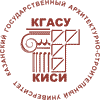About the authors
| First name, Middle name, Last name, Scientific degree, Scientific rank, Current position. Full and brief name of the organization, The organization address. | Medvedeva G.A. – candidate of technical science, associate professor E-mail: This e-mail address is being protected from spambots. You need JavaScript enabled to view it Akhmetova R.T. – doctor of technical science, professor E-mail: This e-mail address is being protected from spambots. You need JavaScript enabled to view it Stroganov V.F. – doctor of chemical science, professor E-mail: This e-mail address is being protected from spambots. You need JavaScript enabled to view it Dirgamova L.R. – researcher Kazan State University of Architecture and Engineering The organization address: 420043, Russia, Kazan, Zelenaya st., 1 |
| Title of the article | The sulfur and ash wastes utilization technology in silicate concretes production |
| Abstract. | Of man-made structures is one of the first places on the volume occupied by TES dumps produced by enterprises of fuel and energy complex. They occupy large areas, are a source of air and water pollution. Great practical interest is the use of slag mixtures as insulating concrete aggregates. However, the last one have low mechanical properties. The impregnating technology using can solve the issue of increasing strength and performance properties. The treatment of porous building products impregnation sealing compositions allows to increase the strength and density of the material and thereby extend the life of structures. Molten sulfur can penetrate into pores of various diameters in the crystallization process and the subsequent cooling is firmly connected with the matrix. This forms a structural material with an interpenetrating structure. Use of a modifier which improves the melt rheological properties of the sulfur, would allow to achieve deep penetration into the material of sulfur. Such substances can include titanium chloride, which reduces the viscosity of the sulfur melt. It is shown that in comparison with the initial samples impregnated cement concrete strength in the modified sulfur melt increased 3 times, water absorption decreased by 2,5 times, there was a slight decrease in thermal conductivity of the samples. Thus, impregnation of the samples in the modified sulfur melt titanium chloride significantly improves the mechanical properties of concrete specimens with ASW while maintaining thermal properties, which allows to extend the scope of concrete. |
| Keywords. | Composite materials, sulfur, ash and slag wastes, titanium chloride, heatproof materials. |
| For citations: | Medvedeva G.A., Akhmetova R.T., Stroganov V.F., Dirgamova L.R. The sulfur and ash wastes utilization technology in silicate concretes production // Izvestiya KGASU. 2014. №3(29) P.167-171. |















